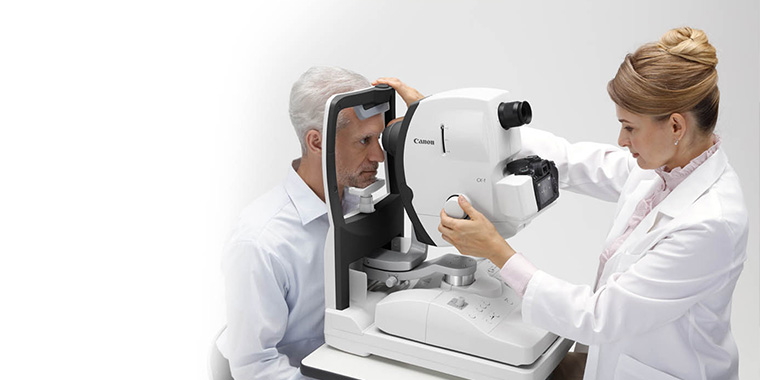Leading Cardiologist Andalusia: Your Partner in Heart Health
Leading Cardiologist Andalusia: Your Partner in Heart Health
Blog Article
Is Refractive Surgical Treatment Right for You? Aspects to Consider for Better Eyecare
In the world of eye treatment, the choice to go through refractive surgical treatment is a substantial one that requires thoughtful factor to consider. From the complexities of one's eye health and wellness to the complexities of everyday practices and personal assumptions, each element holds importance in the wider landscape of refractive surgical treatment candidacy.
Eye Health And Wellness Examination
When considering refractive surgical treatment, a thorough eye wellness examination is essential to examine the suitability of the procedure for every person. eye center andalusia. This examination entails a series of examinations and tests performed by an eye treatment specialist to identify the overall health and wellness of the eyes, the existence of any kind of underlying problems, and the security of the refractive mistake
During the examination, various elements are taken into consideration, such as the patient's medical background, present eye prescription, corneal thickness, pupil dimension, and tear film quality. These evaluations help to recognize any type of contraindications to refractive surgery, such as corneal abnormalities, cataracts, or untreated eye infections. In addition, the evaluation assists to manage individual assumptions relating to the prospective end results of the surgery based on their one-of-a-kind eye qualities.
Ultimately, the eye health and wellness examination is crucial in ensuring the security and efficiency of refractive surgical treatment, as it offers beneficial insights into the person's eye wellness standing and aids establish the most suitable treatment options for achieving optimal visual outcomes. (neurologist andalusia)
Lifestyle Assessment
An extensive lifestyle analysis is integral in establishing the suitability of refractive surgical procedure for an individual's visual improvement needs. Way of living elements such as line of work, hobbies, and everyday activities play an essential duty in the decision-making process pertaining to refractive surgery.
Moreover, lifestyle practices such as sporting activities involvement, exterior activities, or perhaps skin care regimens can influence the healing procedure and overall success of refractive surgical procedure. For instance, individuals that engage in call sports may need to take added precautions to safeguard their eyes throughout the recuperation duration. Furthermore, individuals with substantial sunlight direct exposure may require extra post-operative like prevent difficulties. By performing a detailed lifestyle assessment, eye care professionals can customize their recommendations and therapy plans to satisfy the special needs of each individual, inevitably resulting in boosted aesthetic outcomes and satisfaction.
Expectation Placement

Establishing sensible expectations entails complete pre-operative conversations in between the individual and the ophthalmologist. The specialist ought to transparently connect the prospective risks, advantages, and restrictions of the procedure (neurologist andalusia). People need to understand that while lots of individuals attain 20/20 vision or much better following refractive surgery, some might still need glasses for certain tasks like reading or driving at evening. Managing these assumptions helps prevent dissatisfaction and discontentment post-surgery, leading to a much more favorable general experience for the person.
Threat Analysis

Aspects that may raise the danger of complications include age, particular medical conditions like autoimmune conditions, unstable vision prescription, thin corneas, and unrealistic patient assumptions. In addition, choosing a knowledgeable and skilled specialist, following pre and post-operative care guidelines vigilantly, and revealing any kind of pertinent medical history can assist minimize risks.
To lessen the chance of complications, ophthalmologists carry out detailed pre-operative evaluations to identify any contraindications to surgery. They likewise review the possible risks and benefits with patients during the assessment process. By taking part in open communication and shared decision-making, both the eye doctor and the person can collaborate to determine if refractive surgery is the right choice based on individual risk profiles and wanted end results.
Appointment Relevance
Taking into consideration the critical duty of informed decision-making in analyzing risks and prospective problems in refractive this content surgical treatment, the examination process holds substantial importance in guiding patients in the direction of optimum results. During the consultation, the eye doctor assesses the client's eye health, refractive mistakes, and general suitability for surgery. This first evaluation is important in identifying the most suitable treatment for each person, thinking about elements such as corneal density, pupil size, and existing eye problems.
Furthermore, the assessment offers as a chance for patients to review their expectations, worries, and any type of inquiries they may have relating to the surgical treatment. Clear communication between the patient and the specialist is important to ensure sensible assumptions and a detailed understanding of the possible threats and advantages included.
In addition, the assessment permits the surgeon to describe the various surgical choices readily available, their particular end results, and the post-operative treatment required. This detailed conversation equips patients Extra resources to make well-informed choices concerning their eye care, resulting in far better satisfaction and outcomes post-surgery.
Final Thought
To conclude, individuals thinking about refractive surgical procedure should undergo a detailed eye wellness analysis, assess their lifestyle behaviors, align their expectations with prospective end results, analyze the involved dangers, and prioritize examinations with eye care experts. These aspects play a crucial role in determining the suitability of refractive surgery for each individual, ensuring optimum end results and contentment with the treatment.
People taking into consideration refractive surgical procedure commonly have high assumptions relating to the results, expecting ideal vision without the need for glasses or contact lenses. While refractive surgical procedure can substantially boost vision and minimize reliance on visual help, it is vital for individuals to understand that results might differ based on private factors such as the level of refractive error, corneal thickness, and total eye wellness.
By involving in open communication and shared why not find out more decision-making, both the eye doctor and the patient can function together to establish if refractive surgical procedure is the ideal choice based on specific danger profiles and wanted outcomes.
Taking into consideration the important duty of informed decision-making in examining dangers and potential issues in refractive surgical treatment, the consultation procedure holds significant relevance in assisting patients in the direction of optimal results. Throughout the examination, the eye doctor assesses the person's eye health, refractive mistakes, and total viability for surgical procedure.
Report this page